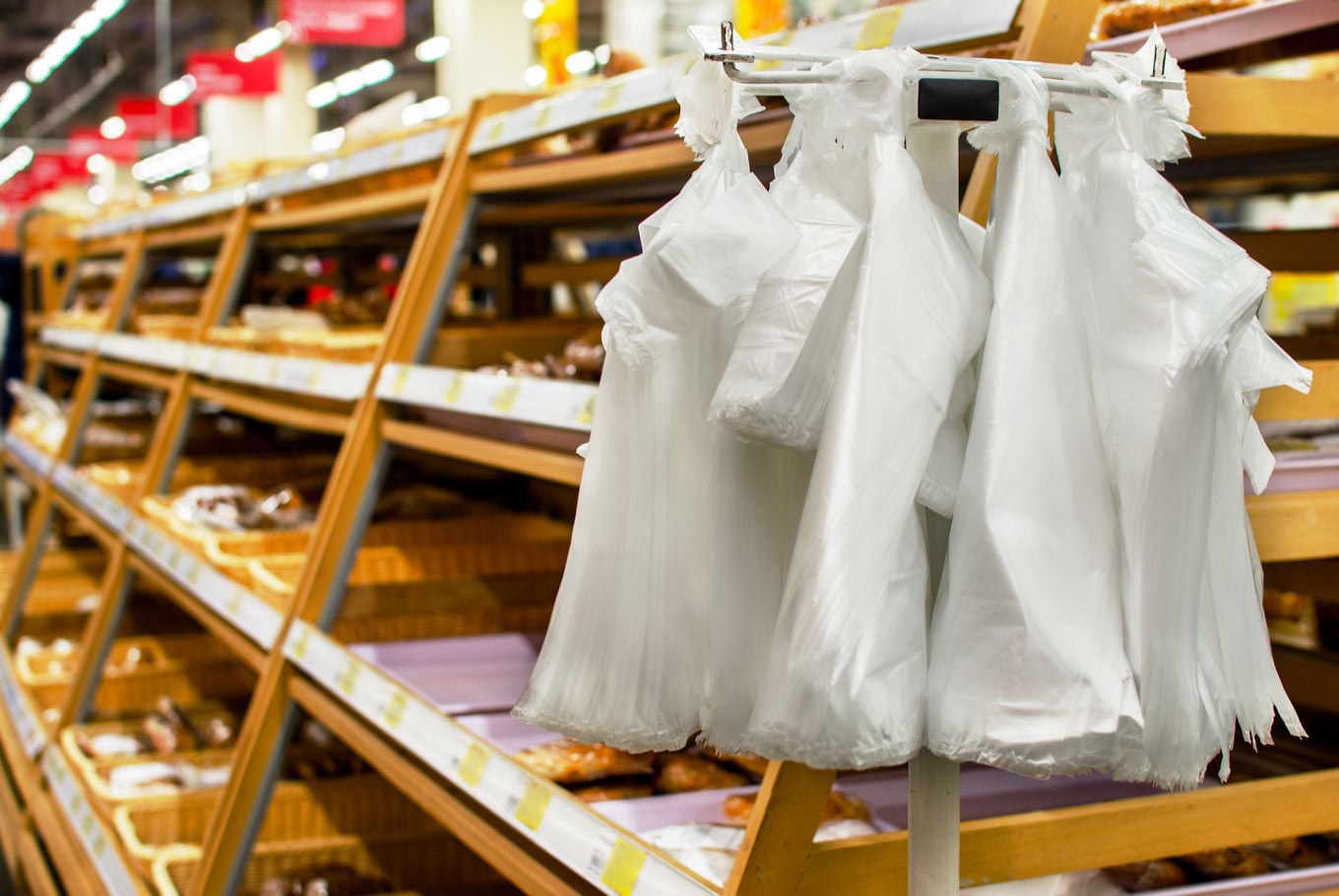Popular Reads
Top Results
Can't find what you're looking for?
View all search resultsPopular Reads
Top Results
Can't find what you're looking for?
View all search resultsWar against plastics: There’s only so much a person can do
Change text size
Gift Premium Articles
to Anyone
T
he world is waging war against plastic waste and, as a country accused of contributing the second most plastic waste into the sea, Indonesia is trying to reduce the amount it produces.
The most popular way to do this lately adopted by several cities, including Banjarmasin in South Kalimantan, Balikpapan in East Kalimantan, Badung in Bali and the latest, Bogor in West Java, is to ban plastic bags at retailers.
The recent discovery of 5.9 kilograms of plastic waste inside the stomach of a sperm whale in Wakatobi in Southeast Sulawesi served as a rude wake-up call. Home Minister Tjahjo Kumolo spoke up to ban disposable plastic water bottles and cups in his office.
Actually, the largest proportion of plastic found in the mammal’s stomach, or 55 percent of the total, was not plastic bags (only 4.4 percent) nor plastic cups (12.7 percent) but more than 1,000 pieces of plastic rope.
Nevertheless, these policies are commendable but are they enough?
The policy of banning or limiting plastic bags at retailers actually puts most of the burden on the consumers. Millions of individuals, including myself, have to change our long-time habits to prevent the earth from being buried under the waste, plastic or nonplastic.
I am not complaining about this. I am very happy to bring my own bags or use cardboard boxes at retailers even though the cities where I work and live, Jakarta and South Tangerang, have yet to apply such a ban. I also try to bring my own food containers or coffee cups when buying food or drinks. I’m not always successful, because old habits die hard, but I think I’m getting better at this.
But I’m getting frustrated at other things that I cannot change, which is a lot of things.
One is broken electronic stuff — from my son’s toys (cheap and expensive), to smartphones from established brands that break too easily and then are too difficult to fix (the repairman said it would be cheaper to buy a new one).
Even when they’re not broken, a five-year-old laptop or smartphone will face difficulty in keeping up with new software updates and the amount of data we have to deal with. We have gone mostly paperless but we end up needing more electronic stuff like flash disks, external hard drives and new computers.
I am also helpless when looking at the way shops or food vendors package their goods when I buy them online. Stuff we buy offline has plastic packaging we cannot reuse as well: shampoo, laundry detergent, toothpaste and myriad other daily things I’m dependent on and thus cannot reduce.
There’s only so much I can do and I wonder whether my plastic diet will put even a tiny dent in this gargantuan problem.
The way our world works depends a lot on economic growth, and to have growth means the population has to work hard to produce, and then work hard to have enough money to consume. Waste reduction means production and consumption reduction. And really, is our world prepared for this?
When a country finds its growth slowing, instead of being happy that we can all slow down and the workforce can have some extra holidays (yay!), produce and consume less and as a result reduce our waste, the country will lament the fact and try to boost growth by injecting some cash aid for the people to buy more.
So, when the society cuts off its use of plastic bags, it will see the rise of “reusable bags” made from fabrics or inferior nonwoven fabrics. My house has fewer plastic bags than it did five years ago, but I have difficulty managing the collection of non-woven fabric bags acquired at various kids’ birthday parties, seminars or events. I have so many that I have run out of people to give them to. So I just pile some of them somewhere in my house. I can use plastic bags for my trash bin liner, but these nonwoven fabric bags (most of them ugly)? Useless.
I have come to believe that the individual’s plastic diet, even though done by millions (if we’re lucky), is only a cosmetic solution for a complex and perpetual problem of production, consumption and waste. As long as the massive producers of disposable plastics do not take a greater role than they have done so far, we will hear another story about some sea creature swallowing our waste.
But I won’t stop bringing my own bags or food containers if only for the right to say this: It’s not me anymore. Now it’s you Unilever, Danone, Sosro, Ultra Jaya, Apple, Xiaomi, Samsung, LG, Sharp, Kao, Wings, Indofood and others too many to mention here.











